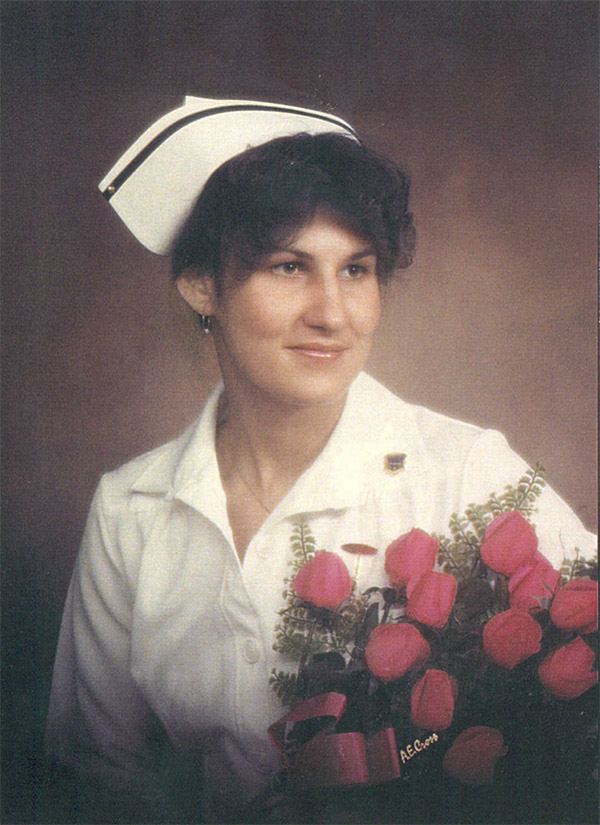Lethbridge College is celebrating 50 years of Nursing education. To mark the occasion, the college is highlighting five alumni from five different decades to show how the program has evolved. This is part one, featuring an alumna from Nursing’s first decade. To learn more about Nursing education at Lethbridge College, visit learn.lc/health-and-wellness.
Dufresne thrives on challenges, even in a pandemic
It takes a certain type of person to not only put themselves on the front lines of a worldwide pandemic, but to embrace the uncertainties of that experience.
“I really love to be challenged,” says Natalie Dufresne, a 2015 Lethbridge College Nursing graduate who now works in the Intensive Care Unit (ICU) at Chinook Regional Hospital. “Things change every hour so we have to be very resilient and adapt very quickly, which isn't always easy. But it's a part of my career and a part of my art of adapting to the world of health and wellness.”
Serving her community in the midst of a pandemic wasn’t on the top of Dufresne’s mind when she was a 16-year-old weighing her post-secondary education options. In fact, she wasn’t sure what she wanted to do. She was leaning towards a career in health care, perhaps as a speech pathologist, until her mom nudged her in another direction.
“She reminded me how much I loved the TV show E.R. as kid,” laughs Dufresne. “I was always interested in the medical profession and she said, ‘well, what about nursing?’ And I said, ‘sure.’ That’s exactly how it happened.”
Her time at the college feels like a blur, where she was rapidly learning the lessons that would allow her to succeed later. She remembers her instructors, like Ramona Stewart, who made her want to try harder just by their encouraging nature, and Robin Brownlee, who showed the value of patience as Dufresne’s first clinical instructor. In the third year of her program, all of the pieces she learned finally connected for her during a placement in Pincher Creek.
“I loved Pincher Creek – the staff, the hospital, my clinical instructor, my clinical group, everything about it,” she remembers. “I had this moment with my patients where I connected anatomy and physiology and the disease process, and something happened in that moment where I was like, ‘this is what I want to do.’”
Dufresne’s journey has now come full circle. In addition to working as an ICU nurse, she has returned to her Lethbridge College roots as a clinical instructor. “I’ve always liked helping students and it reminds me of my own time being terrified as a student,” she says. “I thought, ‘this is like the perfect time to try teaching a clinical group.’ I also wanted to dive back into some of my basics like anatomy, physiology and pathways, so I thought, ‘I might as well challenge myself a little bit and teach, because that's how you learn.’”
Although it is still early in her career, Dufresne says she has found a home in the ICU, where she plays an important role in helping people.
“I like to be an advocate for people who are truly experiencing the worst weeks or more of their life,” she says. “I like the bedside nursing part of it – knowing my patient and seeing them improve is so wonderful. When you've seen a patient struggling for days or weeks and then they get better, it's awesome to see.”
While the next few weeks and months may challenge her like never before – there are many unknowns when dealing with the COVID-19 pandemic – Dufresne is confident her training and outlook will serve her well in continuing to help people and adapting to whatever situation she encounters.
“A long time ago one of my coworkers said, ‘nursing is a science – there's black and white, and policy and procedures that we have to follow, but it's also an art. You kind of have to adapt and make it your own,’” she remembers. “And that’s how I’ve thought of it too. Nursing is an art to me.”
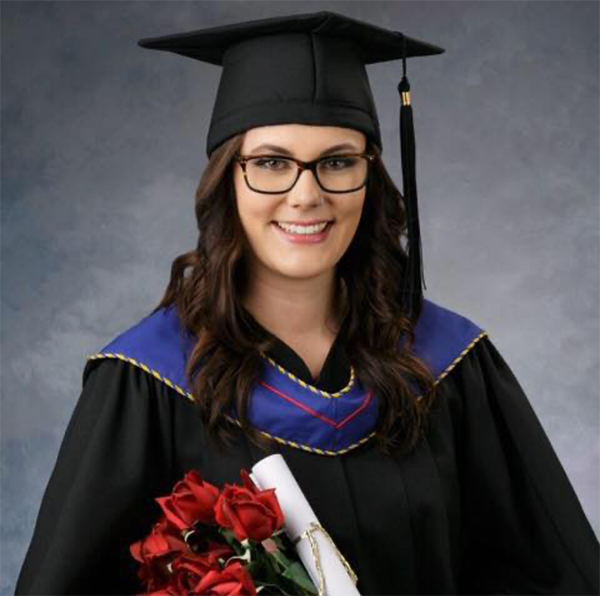
Haase’s career proves the multi-dimensional nature of nursing
Sometimes parents really do know best – or at least see something in you that you don’t necessarily see yourself. Kristen Haase learned that first-hand.
After graduating high school, she wasn’t sure what would come next, but her parents had an idea. “I’m not sure I chose nursing, so much as my parents chose it for me – and they made a good choice!”
As a teenager, Haase gravitated towards jobs that helped people. She volunteered at her great-grandfather’s care home and later became a lifeguard. Her mother was a nurse and knew how valuable those skills are in that profession. Now, 15 years into a successful career that has taken her across multiple provinces and different jurisdictions, she has no regrets. But it took her some time to come around to the idea of nursing. “The truth is, I didn’t think I wanted to be a nurse,” she says. “Having seen many one-dimensional portrayals of nurses presenting them as doctor’s assistants, it was not an appealing career.”
Just 17 years old when she enrolled at Lethbridge College, Haase spent much of her first two years wondering whether she had made the right choice. Many of her classmates were passionate and self-assured with their career choice and she wasn’t sure where she fit in. And then one day, it all clicked. “It was really learning about research and policy that made me feel like there was a place for me” Haase remembers. “I think this is a common feeling for people entering nursing, they don’t really know the expansive career they are entering. Nursing might not be your ‘calling’, but it is an essential profession that makes a huge impact on society.”
Far from being one-dimensional, Haase realized how many vital roles nurses play in the health care system – and how multi-faceted their skills are. “Nursing is full of endless possibilities,” she says. “I always tell students and trainees that there are jobs in nursing they can’t even imagine. The opportunities are infinite. Registered nurses are doing amazing things in primary care, research, technology, policy, and numerous other sectors.”
To understand the many important roles played by nurses in the health care system, Haase says to look no further than the current COVID-19 pandemic. Nurses are on the front lines in health centres and hospitals, running testing centres, contact tracing, and caring for patients who have contacted COVID. It was actually a planning exercise for a potential pandemic that was one of the key touchpoints in Haase’s Lethbridge College education.
“The Health Centre nurse came to our class to talk about the role of nursing in a pandemic,” she says. “The role of nurses - even student nurses – in such a crisis, was really clear. That was when the power and scope of the role of nursing started to coalesce for me.”
While earning her undergraduate degree at the University of Lethbridge, an introductory research course piqued her interest. It sent her down a path of studying and training in the field of psychosocial oncology and she has since completed a Master’s degree and her PhD in Nursing from the University of Ottawa.
Haase is now an assistant professor in Nursing at the University of Saskatchewan, where her research focuses on supporting older adults with cancer and their caregivers, specifically those managing multiple chronic diseases alongside cancer. She intends to continue building her research in this area, both in Canada and internationally.
“It’s been interesting to witness how the number of older adults with cancer has grown, but services, supports and treatments are not adequately targeted to their needs,” she says. “I think there is enough work for a lifetime, and I look forward to doing my part.”
Haase might not have chosen nursing, but her parents’ intuition proved correct – and eventually nursing chose her.
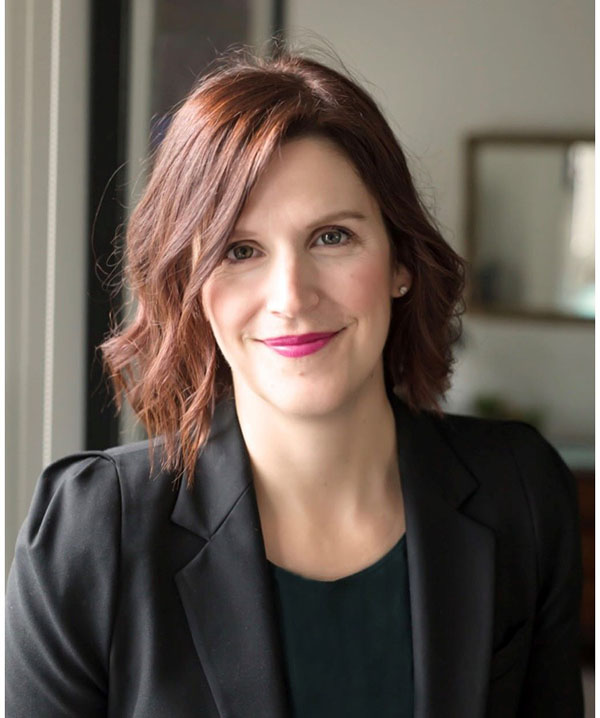
Davidson inspires the next generation of nurses
Sandra Davidson knew exactly what she wanted to do when she grew up and could barely wait to get started. So on her 14th birthday, her task list contained two items – visit the Alberta Registry office and visit her hometown Taber Hospital.
“You had to be 14 and have your learner's permit to be able to be what they called a ‘candy striper’ (now known as hospital volunteer) at the Taber hospital,” remembers Davidson. “So I did that immediately on my 14th birthday and volunteered there through high school and loved it.”
That experience was a first step towards her desire to become a nurse. The next step was attending Lethbridge College. She loved the smaller class sizes and how it allowed her to develop close relationships with her fellow students and the faculty members. Beyond the lessons in the classroom, the comradery and support stand out as highlights on her road to success.
“One of the beautiful things about nursing is that because you learn in small groups in clinical, you really develop close relationships,” she says. “There's a bond you have with those folks that you never lose. Through our travels in life, we've reconnected, and we have a shared memory that we look back on fondly that launched our careers.”
After finishing her Nursing degree at the University of Lethbridge, Davidson prepared to enter the workforce in 1996. Government cutbacks meant nursing jobs were scarce and many of her classmates ended up pursuing careers in the United States. But connections she made during a practicum opened a door for her to stay in Lethbridge and she began work at the Lethbridge Regional Hospital, where she served in a variety of positions for nearly a decade. “I like to say that Lethbridge Regional Hospital is where I grew up as a nurse,” says Davidson.
As she grew more confident in her nursing skills, Davidson also found a talent for mentoring the college and university nursing students who were doing preceptorships at the hospital. She became more involved with clinical instructing and eventually returned to her Lethbridge College roots as the first director of the Practical Nurse program in 1999. She pursued her Master of Science in Nursing degree and permanently shifted her focus from being a nurse to educating the next generation of nurses.
“I have a passion for nursing and what we do when we're working with patients on a one-on-one basis,” she says. “But as an educator, I can foster and support hundreds of students to become great nurses. The ripple effect of them going out into the world and doing great things and having an effect on the wellness of so many people is really, really gratifying.”
Davidson has served in a wide range of academic and practice environments in both the United States and Canada over the past 15 years. She earned her PhD in in Leadership Studies from Gonzaga University in 2011 and currently serves as Dean of the Faculty of Nursing at the University of Calgary, where she continues to inspire students who go on to form the backbone of the province’s health care system. “We need to make sure that our students today continue that tradition of supporting each other and having positive relationships.”
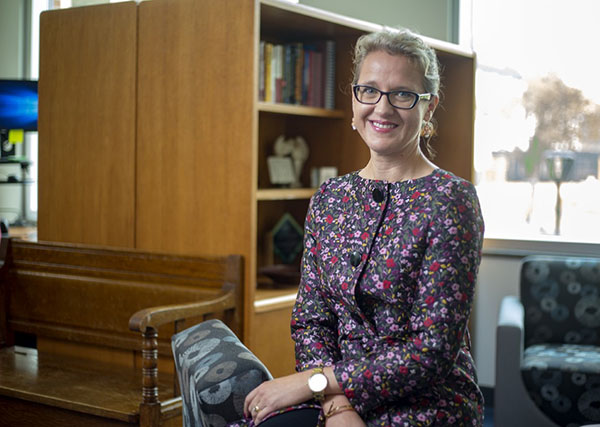
Nykiel’s love of healthcare set him up for long college career
Bill Nykiel remembers the exact day he entered the Nursing program at what was then called Lethbridge Community College. It was Sept. 7, 1984, and he was taking a big step, beginning a new career path as a married, 31-year-old father of two. It was the first exciting step in what would become a 35-year career.
Born in Lethbridge, but raised in Detroit, Mich., Nykiel worked as a Medical Laboratory Technologist before he and his family returned to southern Alberta. Unfortunately for him, related jobs were scarce and he subsequently worked in a non-health industry for several years.
“I began to feel a certain lack of fulfilment in my work life,” says Nykiel. “But a neighbour who was a Registered Nurse suggested on more than one occasion that it was likely I missed working in the healthcare field and would make an excellent nurse.”
At the time, there were very few men in nursing and Nykiel initially shrugged off that option. But his neighbour persisted and mentioned that Lethbridge College had a wonderful nursing program. Nykiel agreed to at least make an appointment to speak with someone at the college.
That meeting was with Jean Valgardson, the chair of the Nursing program. “The details are shadows, but the conversation impacted me enough that within weeks I found myself sitting in a classroom,” says Nykiel. He was joined by 35 women and one other man. Besides influencing his decision to enter nursing, Valgardson had a large affect on Nykiel as a teacher in his student years, a supervisor when employed by the college as an instructor and as a colleague teaching mental health nursing.
Following his graduation in 1984, Nykiel worked for two years at St. Michael’s Hospital on a post-operation surgical unit before he returned to Lethbridge College as an instructor, teaching surgery and mental health in both clinical and classroom settings.
At the college, Nykiel was taught by, and eventually worked with, a long list of excellent nursing educators. “There are so many, but I have to mention Joyce D’Andrea,” says Nykiel. “During my student years, it was Joyce who ingrained the importance of critical inquiry and evidence-based practice and set the tone for how I approached the different roles I’ve had during my career.”
In 2000, he also assumed the role of placement coordinator for the college’s Southern Alberta Collaborative Nursing Education program. By 2003, the practice-based experiences for all Health and Wellness programs were under his care as coordinator of the newly-created Placement Office. “The evolution of the Placement Office took years to develop,” says Nykiel. “I’m very proud of the work I contributed, and thankful for the administrative support that helped move this vision forward.”
Nykiel has been recognized with both the ANEA Leadership in Nursing Education Award and the NISOD Excellence Award. Besides being recognized by professional bodies in nursing and education, Nykiel is well respected within the province as a leader by practice agencies. He is a member of the HSPnet-AB Management Committee and chairs the provincial HSPnet-AB Data Stewardship Committee.
While his roles have changed, Nykiel’s biggest reward is being able to share his passion for healthcare with students and seeing them continue on to successful careers.
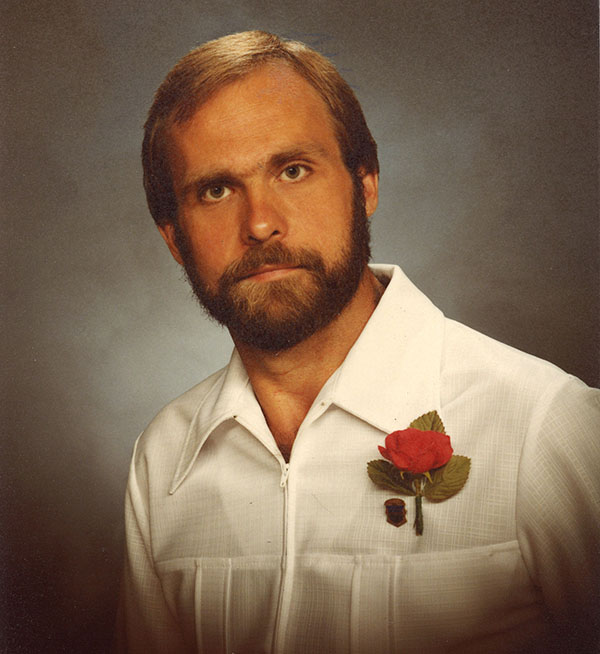
Shanks’ followed her mother’s path, but made her own footsteps
While growing up, Diane Shanks spent countless hours in the halls and rooms of Lethbridge’s St. Michael’s Hospital. Her mother, Darlene (Darlo) Irvine, was head nurse of the operating room and Diane idolized her. From a young age, Diane knew that she wanted to follow in her footsteps.
A gifted athlete and student, Shanks was weighing her post-secondary options when her whole world was rocked. Her mother passed away from cancer at the age of 44. More determined than ever to carry on her mother’s legacy, Shanks chose to stay close to her home and family, and enrolled in the relatively new Nursing program at what was then Lethbridge Community College in 1975.
The college provided the best of both worlds – she pursued her education while playing for the women’s basketball team, the Kodiettes.
“The Nursing faculty were supportive of me pursuing athletics, even though the two-year program was quite demanding,” remembers Shanks. Her basketball teammates became some of her closest friends and offered much-needed support as she finished her program. “The college provided a really nice balance of both classroom knowledge, as well as hands-on practical experience. It prepared me quite well for entering the nursing profession.”
Her first job was at the University of Alberta Hospital in Edmonton, before she returned to her hometown and her roots at St. Mike’s. “I remember going to that hospital and knowing the nurses and doctors. My mom would sometimes have meetings at our house, so I really got to know the nursing and healthcare community from that place. It was quite natural for me to go back there.”
Shanks completed her Bachelor of Nursing degree at the University of Lethbridge and when St. Michael’s closed, she moved to Chinook Regional Hospital. Like her mother before her, she found her calling in the emergency room.
“It really challenges every aspect of your nursing knowledge, skills and expertise,” she explains of her passion for emergency care. “You're dealing with every kind of health care scenario – young children, the elderly, maternity cases, orthopedics and broken bones, trauma, heart attacks, strokes. Patients who come in with such a huge variety of clinical presentations.”
As her career advanced, Shanks left the bedside for an administrative role as a Clinical Director. She played a key role in the development and evolution of the region’s emergency health system. “'I’ve been part of the regionalization of services, where we've standardized policies, procedures, equipment and developed an emergency network that I'm very proud of.”
She has also played an advisory role in post-secondary nursing education in Southern Alberta, sitting as an alumni representative on the Nursing Education in Southwestern Alberta (NESA) Advisory Committee. In this role, she has been able to contribute to the design and development of nursing education in Lethbridge and provide feedback on current heath practice environment challenges.
But Shanks’ heart has always been with helping people. After retiring from her administrative role in 2017, she returned to the front lines and still works as an emergency room nurse – following the same passion that led her into her career nearly four decades earlier. “When people come in, they don't necessarily have a diagnosis yet and they are concerned. To be able to sort some of that out and help solve some of their problems, make them feel better, is very rewarding.”
